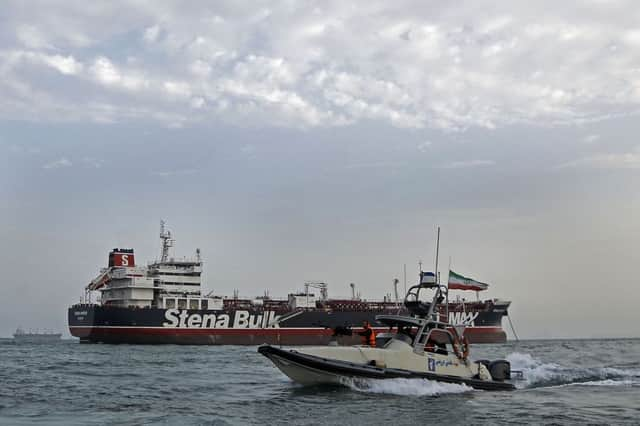The Glasgow link to two tankers seized by Iran


Glasgow’s fame as one of the world’s biggest shipbuilders may be far in the past, but it remains a key global maritime player, as the Iranian seizure of two oil tankers in the Persian Gulf last week revealed.
The giant ships are just two of several hundred managed from the city – along with thousands of seafarers – in what is reckoned to be the biggest concentration in Europe.
Advertisement
Hide AdAdvertisement
Hide AdBut such behind-the-scenes activity has been largely overlooked, its invisibility compounded by the disappearance of most of Glasgow’s docks on the now virtually empty Clyde.
I came across the hidden work of this sector five years ago when invited by Teekay – one of the world’s largest liquid gas shipping firms – to a land-locked office building just west of the city centre to find a new simulator that replicates the bridge of a supertanker, and is used to train hundreds of people a year.
In similar vein, the Stena Impero tanker, which remains impounded by the Iranian authorities after being intercepted in the Strait of Hormuz last Friday, is managed from an unprepossessing office in Clydebank which suddenly found itself the backdrop to live TV news broadcasts.
Northern Marine, part of Swedish-owned Stena group, also looks after nearly 80 other tankers and ships from the premises.
The other tanker to be seized, the Mesdar, which was released later last Friday, is managed by Norbulk Shipping, based in Glasgow’s Merchant City. From there, its 100 staff members’ duties include recruiting crews and arranging inspections of tankers and container ships.
Other major players in the city include V.Ships, which has 300 staff managing 114 vessels from the Skypark office complex opposite the SEC. Anglo-Eastern, based nearby, has 60 staff who manage 43 offshore energy, container and other cargo vessels.
So why are all these companies located in Glasgow?
The firms tell me its partly to do with the city’s maritime heritage – a legacy from the expertise generated by age of the shipyards. They also pointed out that a disproportionate number of British seafarers come from the Highlands and Islands, whose emigrés have traditionally looked to Glasgow for employment.
The companies said they had built on this to establish a maritime centre which had a low-cost advantage compared to the other main global hubs in London, Singapore and Hong Kong, which are becoming increasingly expensive places to be based.
Advertisement
Hide AdAdvertisement
Hide AdIf road and rail freight are the Cinderellas of the UK transport system, equally, much shipping operates away from public attention despite carrying 90 per cent of the world’s goods.
The Scottish Maritime Cluster, which promotes the Glasgow-based sector, has estimated that it clocks up a £9.3 billion turnover, nearly a quarter of the UK’s total, and supports almost 40,000 jobs.
The city also provides a wealth of maritime training, from the City of Glasgow College’s riverside campus in the city centre and Glasgow Maritime Academy in the east end to Clyde Marine Training and Clyde Training Solutions in Clydebank. So when it comes to the shipping business in Glasgow, don’t be fooled by seeing only the occasional vessel plying the waters of the Clyde – it’s just that the city is now ruling the waves elsewhere.
